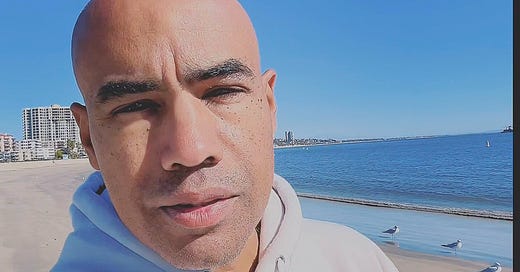In the realm of co-parenting, there’s a painful, often hidden narrative that many fathers know all too well. It’s the story of men fighting to remain present in their children's lives while facing barriers that make this nearly impossible. One of the most frustrating tactics used to mask these barriers is the lie: "He can see the kids whenever he wants." But the truth is, for many fathers, this statement is as false as it is hurtful.
In this latest episode of ReMinding Yourself, I dive deep into the reality behind statements like "He doesn’t want to see the kids" or "He doesn’t call." These phrases, repeated to friends, family, and sometimes even courts, create a distorted narrative that fathers are disinterested, distant, or uninvolved. But as many fathers know, the actual barriers to involvement are far more complex.
The Real Struggle Fathers Face
The misconception that fathers can "just see the kids whenever" ignores a harsh reality. Access to one’s children isn’t as simple as showing up at the door. Co-parenting requires coordination, open communication, and often a measure of flexibility. For some fathers, trying to arrange a visit with their children involves navigating an exhausting web of roadblocks—from unreturned calls to dismissive texts to confrontational interactions.
Many fathers find themselves in a difficult position. Attempting to see their children without prior coordination can quickly lead to misunderstandings or worse, police intervention. Society often expects men to "handle it" and push through obstacles. Yet, showing up to the mother’s home without coordination often puts fathers in a vulnerable position, one that can lead to accusations and unfair judgments.
The Financial Focus of the Court System
To add to these challenges, the legal system often reduces a father’s role to one question: "How much can you pay?" Courts focus on financial contributions rather than supporting a father’s desire for emotional involvement and time spent with his children. As long as the financial aspect is fulfilled, the courts typically show little interest in whether a father is granted meaningful access.
Even when fathers take the path of legal recourse, they’re frequently met with obstacles that seem designed to restrict rather than support their parental rights. In many cases, unless the mother’s behavior crosses extreme thresholds, the court system’s sympathy lies elsewhere. This financial emphasis on fatherhood not only perpetuates outdated stereotypes but undermines the importance of a father’s presence and emotional bond with his children.
Double Standards in Parenting
Another part of the story involves double standards in parenting. While mothers are often given the benefit of the doubt—even when struggling—fathers are expected to be flawless in every way. For instance, a mother may rely on technology like YouTube to keep children occupied or serve quick meals like hot dogs or ramen without her parenting skills being questioned. However, fathers are held to a higher standard in courtrooms and society alike.
This disparity highlights the unfair treatment that fathers experience. A parent who may be struggling should, ideally, receive help and support, not judgment. Yet, when it comes to fathers, the system often makes no allowance for mistakes, struggles, or external barriers. Fathers are expected to fulfill financial obligations above all else, leaving little room for empathy or support in other areas.
The Real Solution – Open Communication for Children’s Wellbeing
The answer isn’t in the constant back-and-forth or in wielding access as a tool for power or revenge. It’s in open communication. Children benefit from both parents actively involved in their lives, not from one parent acting as a gatekeeper. Unfortunately, the current system, both socially and legally, often fails to recognize the importance of this balanced approach.
It’s simple: children need their fathers, just as they need their mothers. This isn’t a one-sided equation. Parenting, by its very nature, requires collaboration. Keeping a father from his children without due cause creates a lasting impact on both the father and the child. In this episode, I explore why it’s essential to keep pushing for fathers’ rights, why fathers should feel empowered to remain present, and how society’s perspective on fatherhood needs to shift to reflect a fairer, more inclusive understanding.
A Call to Action
If you’re a father dealing with these challenges, know that you’re not alone. It’s crucial to keep pushing, to seek healthy ways of maintaining your presence, and to find support networks that understand the emotional toll of separation. To those who know fathers facing these struggles—take the time to understand the situation fully before making assumptions. Support and empathy go a long way.
Subscribe to ReMinding Yourself for more real conversations on fatherhood, resilience, and the journey of staying connected to your children. Together, let’s bring attention to these issues, challenge outdated perspectives, and remind ourselves of the true importance of being present, against all odds.
And if you know someone that could benefit from this content, or that could contribute their own story of their struggle, please share this podcast with them.













Share this post